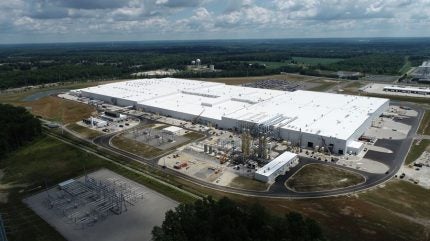
South Korean electric vehicle (EV) battery manufacturers LG Energy Solution (LGES) and Samsung SDI Company have agreed to install lithium iron phosphate (LFP) battery production lines at their respective joint venture plants with General Motors (GM) the US, according to reports in South Korea citing people familiar with the matter.
LGES’ joint venture with GM, called Ultium Cells LCC, currently has two battery plants in the US, in Tennessee and Ohio, which were completed in 2024 and 2022, respectively, and produce high-nickel-cobalt-manganese (NCM) batteries.

Discover B2B Marketing That Performs
Combine business intelligence and editorial excellence to reach engaged professionals across 36 leading media platforms.
GM has requested that some of the production lines be switched to cheaper LFP battery cells, to help lower its battery electric vehicle (BEV) production costs and allow it to offer a broader range of battery options in its BEVs in the North American market.
GM hopes to lift its BEV sales in the region by offering both types of batteries in its vehicles, with the more expensive nickel-rich NCM batteries used mainly in its premium BEVs and LFP batteries used in its mass-market models, giving it access to a broader customer base. The US automaker is understood to be planning to offer LFP batteries in five of its seven existing BEV models, including the Chevrolet Bolt, Equinox, Blazer and Silverado EV.
LGES and GM are also developing lithium-manganese-rich (LMR) batteries, which are expected to offer good performance characteristics while retaining the low-cost advantages of LFP batteries. Ultium Cells is expected to begin production of LMR batteries in 2028.
Samsung SDI has also agreed to switch some production lines at its joint venture plant in Indiana. The facility, which is scheduled to become operational in 2027, was originally designated to produce only NCM batteries, but will now also produce the cheaper LFP battery cells.




